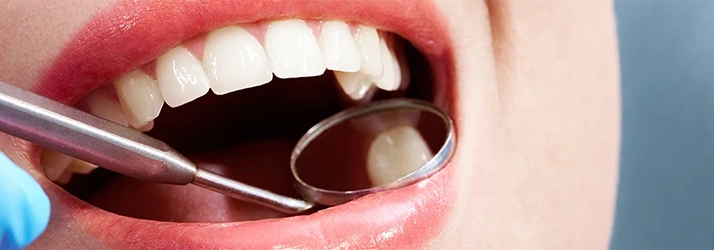Sudden Tooth Pain? Here's What Might Be Causing It — and Why You Should Give Us a Call ASAP

Tooth pain and sensitivity are common oral health issues. In fact, one survey reported that 22% of adults in the United States had experienced tooth, gum, or jaw pain within the last six months.
When you suddenly develop a toothache, you might wonder what’s behind the pain and if you need to seek prompt dental care. Unfortunately, since tooth pain has a variety of causes, the answers aren’t always simple.
At our practices in Hickory NC and Statesville NC, endodontist Robert Scott Nance, D.D.S., M.S., P.A., leads our team in diagnosing and treating toothaches that have a variety of causes and range from mild to severe.
In this month’s blog, we discuss what could be causing your toothache and how we can help.
Cavities or abscesses
When you have a dental cavity, leftover food, plaque, and bacteria have worn away the surface of your tooth, forming a small hole.
A small cavity doesn’t usually cause symptoms, but if you leave it untreated, the cavity can grow larger and expose the deeper structures of your tooth. Large cavities can cause pain in the affected tooth or radiate to other teeth.
Sometimes, an untreated cavity can also lead to an infection since the opening in your tooth leaves it vulnerable. An infected tooth can develop a pocket of pus known as an abscess. Dental abscesses can cause severe pain.
If you notice sudden tooth pain or an abscess, contact our office quickly to have it checked. These issues need to be treated promptly for a good outcome.
Gum disease
When plaque and tartar build up around your gums due to poor oral hygiene, you can develop gum disease. Early stages of gum disease are known as gingivitis and cause mild gum swelling and irritation.
If gum disease isn’t treated, it can develop into periodontitis, which can wreak havoc on your gums and the structure of your teeth. Severe periodontitis can cause gum and tooth pain along with dental abscesses.
To avoid the loss of permanent teeth, see our team for prompt cleaning and treatment.
Tooth grinding (bruxism)
Bruxism is the medical term for grinding or clenching your teeth during the day or while sleeping. Oftentimes, dealing with high stress levels, consuming too much caffeine, or taking certain medications can lead to chronic bruxism.
If chronic bruxism is left unchecked, the protective enamel layer of your teeth can wear away, leaving your teeth vulnerable to sensitivity and pain.
Our team can help you manage your bruxism by prescribing a custom mouthguard to wear at night that prevents your teeth from coming into contact. Lowering your caffeine intake and finding healthy ways to manage stress are other effective management strategies.
Cracked tooth
It may seem obvious that a cracked tooth would lead to tooth pain. However, sometimes these cracks are so small that you won’t notice them just by looking at the affected tooth.
A crack in a tooth allows space for bacteria to enter and infect the delicate nerves and blood vessels inside.
Whether a crack or a subsequent infection causes your tooth pain, please don’t wait to see our team for repair.
For diagnosis and treatment of sudden tooth pain, schedule an appointment by calling your nearest office location today.



